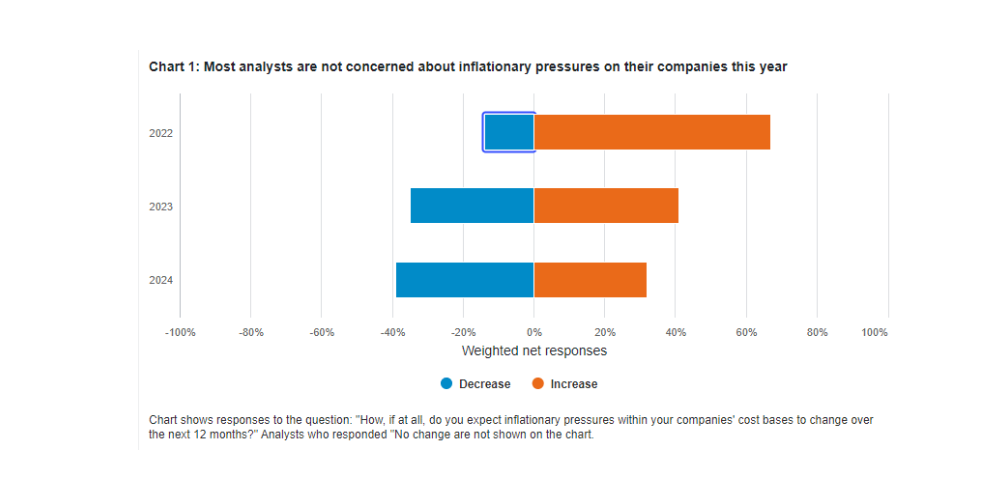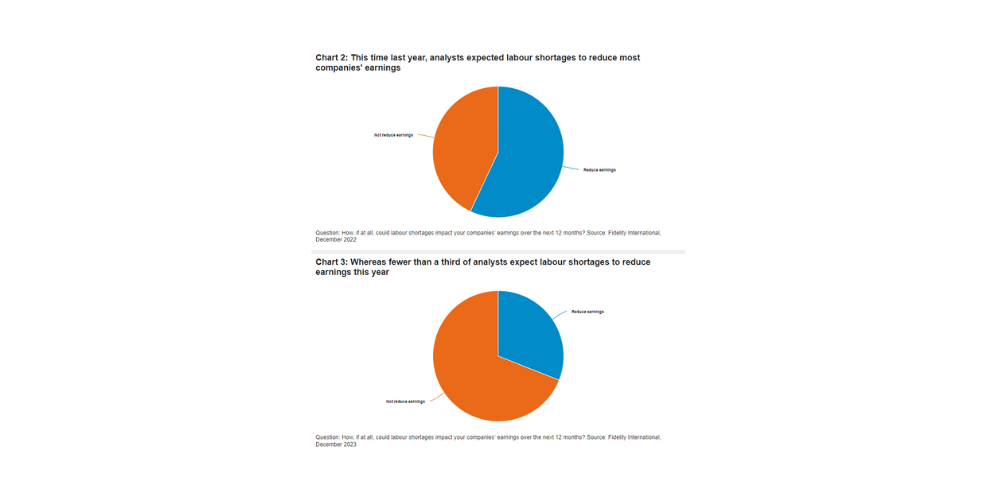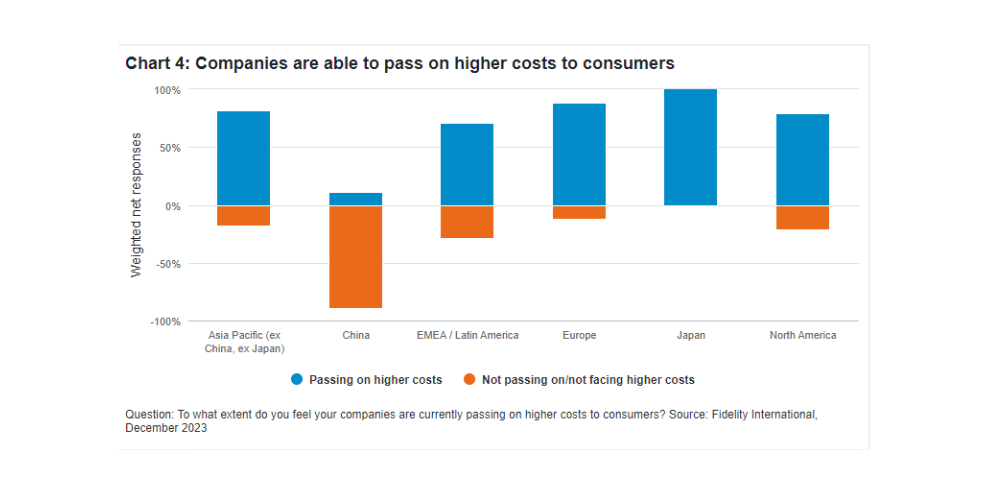The shifting mood among companies heading into 2024 is neatly summed up by one Fidelity International equities analyst.
“No one talks about inflation anymore,” says Brendan Cochrane, who covers North American consumer discretionary companies.
Brendan is one of 137 research analysts who completed Fidelity’s latest annual Analyst Survey, which we have been running for over a decade. It consults a range of fixed income, equity, private credit, and cross-asset experts who cover dozens of sub-sectors of the economy. The verdict from our analysts is that companies’ cost inflation will continue to ease over the next 12 months.

This year’s results provide some bottom-up vindication of central bankers’ refusal to pivot on interest rate hikes for so long, while labour markets remained tight. It also suggests the US Federal Reserve has picked a good moment finally to do so, with chair Jerome Powell saying in December that he expects to cut rates through 2024.
“Labour wages were the last sticky aspect”, says Brendan. “But these seem to be normalising quickly as well.”
Sign of the times
Generally speaking, analysts are not saying that labour shortages have evaporated entirely, but where they do still exist, they are placing less strain on companies. Last year, just over half of analysts believed labour shortages were expected to reduce earnings; now fewer than a third do.

Likewise, most companies have been able to pass on any higher costs to consumers, as Chart 4 shows. China stands out here because it is facing a different problem from the rest of the world. Chinese companies are struggling with weak demand rather than rising costs, plus challenges with falling property prices and high levels of youth unemployment. Some companies are responding by cutting prices. Falling prices for Chinese exports could further reduce cost pressures in regions like the US and Europe.

Giuseppe Galoppo, an equities analyst who focuses on European IT companies, reports that his companies went “through a period of very high [staff] attrition over 2021 and 2022 which led to strong wage inflation.”
“However, the big wave has moderated significantly and we are back to a normal level now.”
There are also signs that the challenges of the past few years have made companies more resilient.
“If airlines don’t plan well for their growth in capacity, they may struggle to find enough staff, leading them to have to either pay more in wages, or cancel flights,” notes Jonathan Neve, a fixed income analyst who looks at European airlines.
“This is exactly what happened in the summer of 2022, but one would hope that airlines have learnt their lessons and are planning accordingly. It may mean incurring slightly higher staff costs at the beginning of the year but that will ensure operational resilience.”
There was evidence elsewhere of companies adapting to persistent labour pressures. Bobby Missar, a fixed income analyst, tells us: “The skilled labour shortage remains a structural issue for US builders.”
“But while it has increased labour costs, builders have been able to cut costs elsewhere - turning previous standard finishes into upgrades, or reducing square footage of homes while limiting price reductions, for example.”
New technologies will also help companies to adapt. Sukhy Kaur, a fixed income analyst looking at European financials companies, reports: “Given the increased use of digitalisation in the financial sector over the past couple of years, labour shortages would only have a moderate impact.”
Where next?
The full results of the survey, due to be published soon, speak of companies forced to adapt to a harsh new world: one of war, geopolitical uncertainty, and rapid advancements. But crimping inflation suggests a global economy that is already growing more resilient in the face of adversity.
For a copy of the full survey and more details on Fidelity International and their Funds and Strategies please visit their website.

